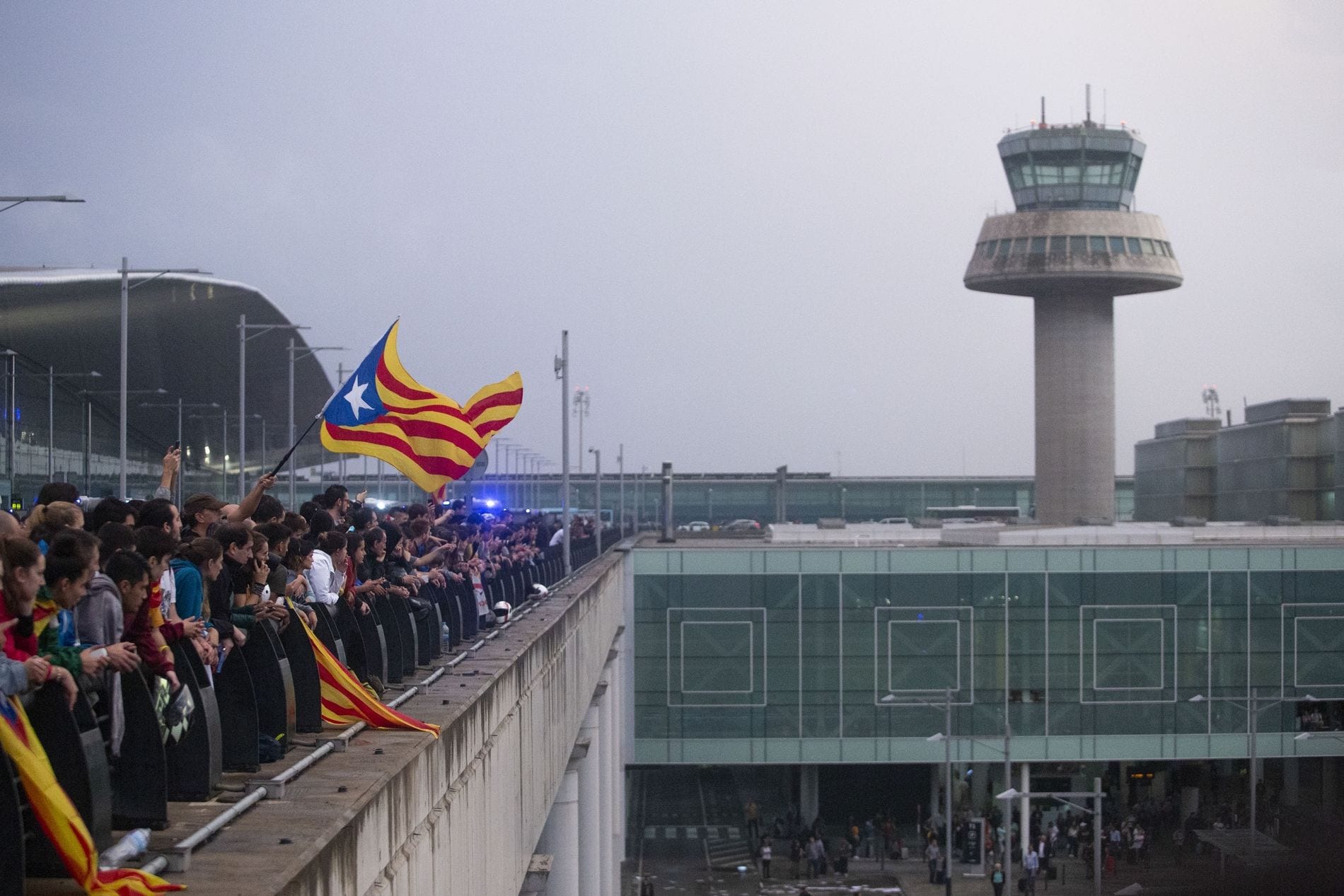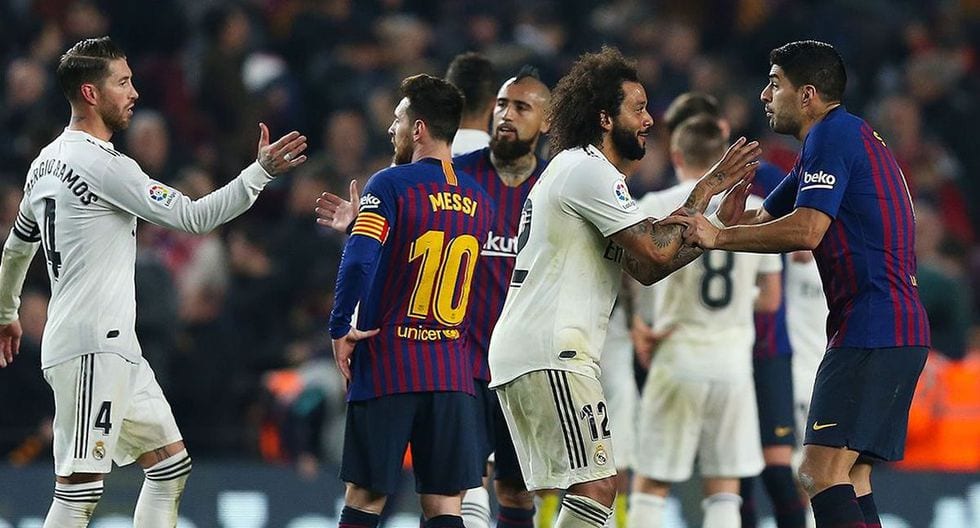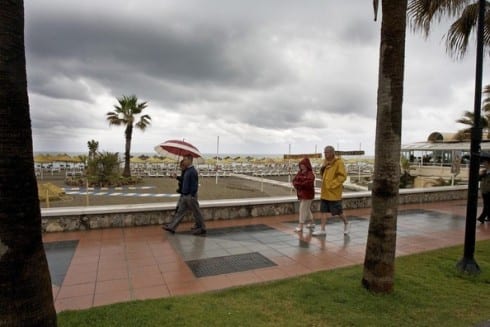WEDNESDAY’S El Clasico between Real Madrid and Barcelona will be policed by 3,000 troops to ensure that Spanish-Catalan tensions don’t boil over, it has been announced.
Around 1,000 officers from Catalunya’s regional police force Mossos will join the club’s own security on the streets outside Camp Nou.
READ MORE:
- Tourist dies in Catalan airport chaos as riots paralyse Barcelona after Spain jails independence leaders
- WATCH: Wall of police fires on protestors as rocks and rubber bullets fly in Barcelona
- Catalan president reacts as carnage in Barcelona continues into the fourth day, with 33 more arrests made and 80 people receiving treatment
It comes as campaign group Tsunami has organised several protests inside and outside the ground for Spanish football’s most anticipated match of the season.
There will be two ‘phases’ of security at the match in Barcelona on November 18 at 9pm.

Phase one will be a ‘non-armed’ police cordon, which will provide access to the 99,000- capacity stadium.
The second phase will see pitchside security teams inside Camp Nou keeping fans separate and preventing them from entering the field of play.
Additionally, there will be a ‘greater intensity’ of checks for fans entering the ground.
Those travelling to the game are also advised to take the Metro or make the journey on foot, as car parking could be made more difficult due to increased security.
Meanwhile, Tsunami has been warned by police to stay away from the ground, despite its action planned nearby.
The group’s activists are set to protest at the following spots around Camp Nou: Calle Aristides Maillol con avenida Joan XXIII, Avenida Joan XXII con la calle Menendez y Pelayo, la Travessera de les Corts con Aristides Maillol and Travessera de les Corts con Elisabeth Eidenbenz.
However a Tsunami spokesperson insisted that the group does not want the game ‘blocked’ or ‘suspended’.
Fears of civil unrest caused the fixture, which was due to be played in October, to be rescheduled for this week.
It came after Spain jailed nine Catalan separatist leaders over their role in Cataluyna’s illegal independence referendum of 2017.










